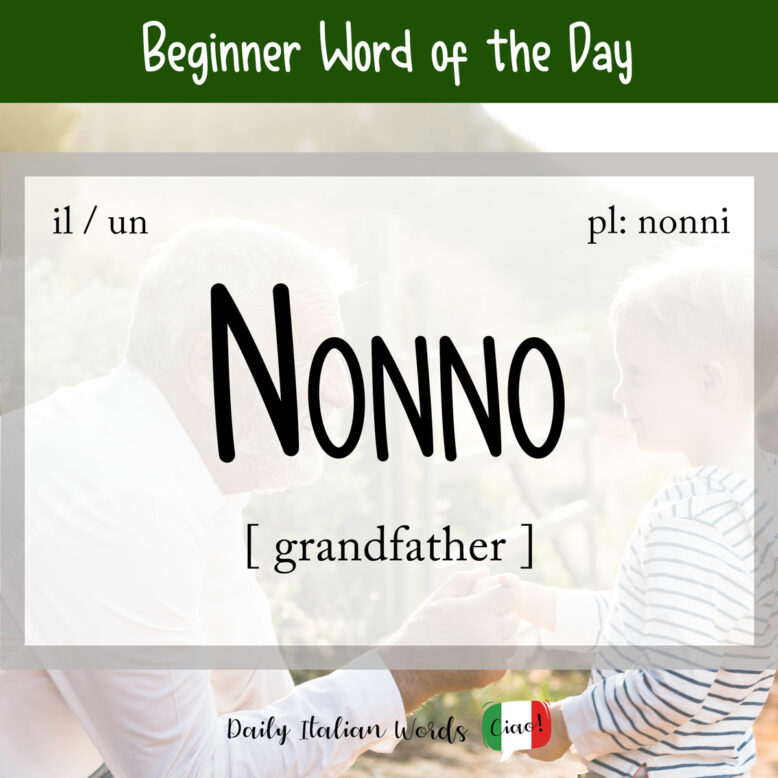We already covered how to say “grandma” (nonna) in a previous article, so now it’s time to talk about the other half of the grandparent team!
The most common way to say grandpa or grandfather in Italian is nonno (plural: nonni which can mean either grandpas or grandparents).

Your paternal grandfather is your nonno paterno whereas your maternal grandfather is your nonno materno.
Mio nonno mi porta sempre delle caramelle.
My grandpa always brings me sweets.

Alternative ways of saying nonno are nonnino, nonnetto and nonnuccio, all of which are affectionate forms of address.
Many English-speaking people with Italian ancestry use the word nonno to describe their grandpa, although it tends to be pronounced with one n instead of two.
The word for great-grandfather is bisnonno. The prefix bis literally means second, two times or one step removed. Substitute bis with tris and you get trisnonno, great-great grandfather. For the latter you can also hear the word trisavolo.
Il mio bisnonno compierà 100 anni a Novembre!
My great-grandfather will turn 100 in November!
When addressing an elderly gentleman who isn’t necessarily your grandfather, it is possible to use the word nonno as a nickname if you know the person well enough and he doesn’t mind being teased in a friendly way. If you don’t know him well, the nickname might not be appreciated.
Nonno can be used to describe a person who has an old mentality or is a bit slow in doing things.
Ci hai messo tre giorni per mandarmi una mail. Sei peggio di mio nonno!
It took you three days to send me an email. You’re worse than my grandpa!
We also have the expression fare il nonno which is often used to describe young people who prefer to stay at home and relax rather than go out, party and socialise.
Dai, non fare il nonno. Esci con noi a ballare stasera!
Come on, don’t be an old geezer. Come out and dance with us tonight!
If you want to express surprise or scepticism, you can reply to someone with Sì, mio nonno! which is a bit like saying Yeah right! in English when you don’t believe what the person is saying.
Domani vado a fare una corsa di 30 chilometri. – Sì, mio nonno!
Tomorrow I’m going to do a 30-kilometre run. – Yeah right!
Finally, nonno can refer to a military person close to retirement. The noun is also contained within the word nonnismo, a military slang term used to describe the harassment and humiliation of new recruits by senior soldiers.
Heather Broster is a graduate with honours in linguistics from the University of Western Ontario. She is an aspiring polyglot, proficient in English and Italian, as well as Japanese, Welsh, and French to varying degrees of fluency. Originally from Toronto, Heather has resided in various countries, notably Italy for a period of six years. Her primary focus lies in the fields of language acquisition, education, and bilingual instruction.


